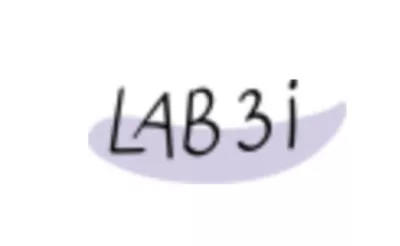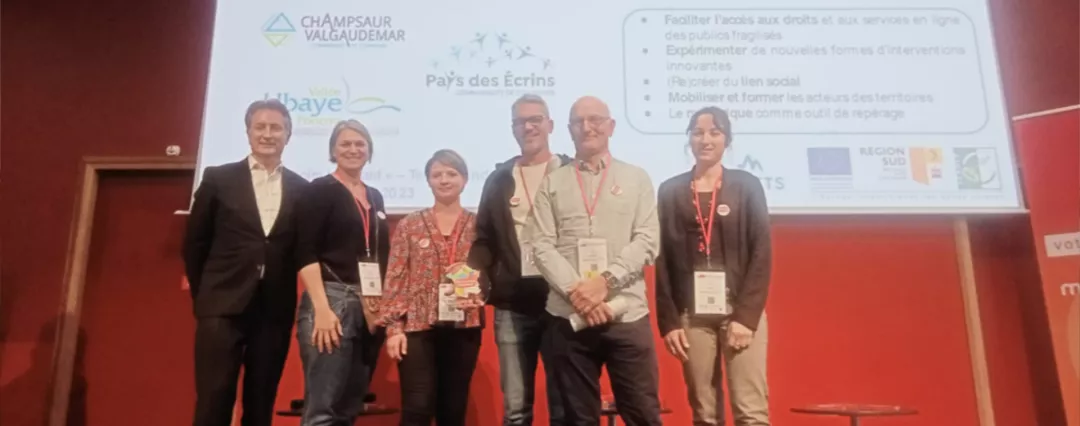General information
RDP Priority
- P6. Social inclusion and local development
RDP Focus Area
- 6B: Local development
RDP Measure
- M19: LEADER/CLLD
Beneficiary type
- Non-governmental organisation
Summary
The Lab 3I: Alpine Territorial Laboratory is a cooperation project led by the ADRETS association, in partnership with three remote mountainous territories of the Southern French Alps. The name ‘Lab 3I’, refers to the three 'I's of Illiteracy, Illectronism and Itinerancy. The project centred on the idea of a territorial laboratory for experimentation and the sharing of experiences between peers and experts. The overall aim of this platform was to ensure access to public and social services for all inhabitants of remote areas, regardless of their age, origins and skills.
Results
- Three 'monographs' on the three territories were written, so as to better understand the specificities of each territory in relation to each of the three ‘I’s.
- Four awareness webinars, covering the project’s main topics, were offered free of charge and made available for replay to any stakeholders.
- A board game aiming to help decision-makers and technicians to develop a better understanding of the difficulties faced by the inhabitants of these rural territories (still in use by local steering committees even after the project).

Promoter
ADRETS
Funding
Total budget: 455 069 (EUR)
EAFRD: 244 872 (EUR)
National/Regional: 163 248 (EUR)
Private/own: 46 949 (EUR)
Resources
Documents
Good Practice Report - Lab 3I: Alpine Territorial Laboratory
(PDF – 1.01 MB)
Context
From 2020 to 2023, the French organisation “ADRETS” (an association focused on local development and territorial networking) led a LEADER cooperation project together with three mountainous territories of the Southern Alps (Champsaur-Valgaudemar, Vallée de l'Ubaye Serre-Ponçon, Grand Briançonnais). The project was called ‘Lab 3I’, in reference to the three Is of Illiteracy, Illectronism and Itinerancy that were the focus of its experimental and participatory actions.
‘Lab 3I’ sought new ways to support people living in remote mountainous areas who experience difficulties linked to language, writing and digital technology use. While these difficulties don’t only affect the inhabitants of remote territories, they can nonetheless be amplified in such areas because people are more isolated and cannot easily be reached by social and public services. To meet the needs of all citizens, these services must be delivered at a local level, and must be attuned to the fact that many people experience difficulties with reading and/or with the use of digital technologies. This may be linked to learning difficulties, intellectual disabilities, language acquisition (amongst non-native speakers, for example), or age, but as administrative procedures become increasingly digitised, many people are likely to require additional support.
While the three pilot territories share similar geographic features - they are all mountainous remote areas organised around small town centres of around 2 000 to 3 000 inhabitants - they don’t necessarily have the same strategies, or the same stakeholders’ dynamics at the local level. Those differences contribute to the added value of this cooperation project, enabling the territories to share their experiences and find better ways to include their citizens.
Objectives
The principal goal of the project is to better address local people’s needs by improving their access to public and social services. Three sub-objectives contribute to delivering this overall ambition:
- To cross-analyse territorial issues related to mobility, illiteracy and connectivity which may hinder access to services.
- To improve cooperation between three Alpine territories by sharing experiences, tools and resources.
- To conduct experimental actions and workshops that actively involve local stakeholders.
Activities
The project was divided into three main axes:
- Axis 1 - implementing local workshops to test and deepen educational and interactive methods ranging from identifying users' difficulties to evaluating the techniques used.
- Axis 2 - sharing of knowledge and know-how to enhance the skills of the project partners and complement them with external resources.
- Axis 3 - fostering territorial cooperation within the experimental laboratory to analyse more closely the profiles and needs of the territories. This allowed them to stimulate interest within the local communities, and to build partnerships that support those with the greatest difficulties.
The activities were diverse and enabled the testing of innovative and interactive methods such as reading-writing workshops, digital workshops (individual or collective), repair café, cooking workshops, etc. These activities were offered within the three territories, in partnership with local stakeholders such as social and community centres, youth and cultural centres, and local libraries.
Main results
The project led to several results related to the three project axes. Some results are common to the three territories:
- Three 'monographs' were made to better understand the specificities of each territory in relation to each of the three Is (Illiteracy, Illectronism and Itinerancy).
- Four awareness webinars, covering the project’s main topics, were offered free of charge and made available for replay to any stakeholders.
- A board game aiming to help decision-makers and technicians develop a better understanding of the difficulties faced by the inhabitants of these rural territories (still in use by local steering committees even after the project).
Beyond that, some results were specific to each territory and led to the realisation of:
- Stakeholder mapping in the Champsaur-Valgaudemar territory;
- One cookbook produced by the Grand Briançonnais-Pays des Ecrins;
- The long-term implementation of the digital counsellors’ service in the Vallée de l'Ubaye Serre-Ponçon.
Moreover, the three territories received the ‘Gold Innovative Territory Award’ at the Interconnected Forum (Forum des Interconnectés) in March 2023; highlighting the project at the national level and enabling other French territories to discover it and be inspired.
Key lessons
- Innovative LEADER actions should be well organised to allow time for trust to develop between partners. Indeed, some experiments may not work in the beginning because the local population are not aware of the innovative actions that are taking place. This does not mean that it won’t be efficient and useful in the end, but plan for the long term to be sure of capturing the real impact of a project.
Cooperation was key to achieving this project: without the contribution of each territory, mutual support and trust between partners, we wouldn’t have been able to meet our local challenges!
